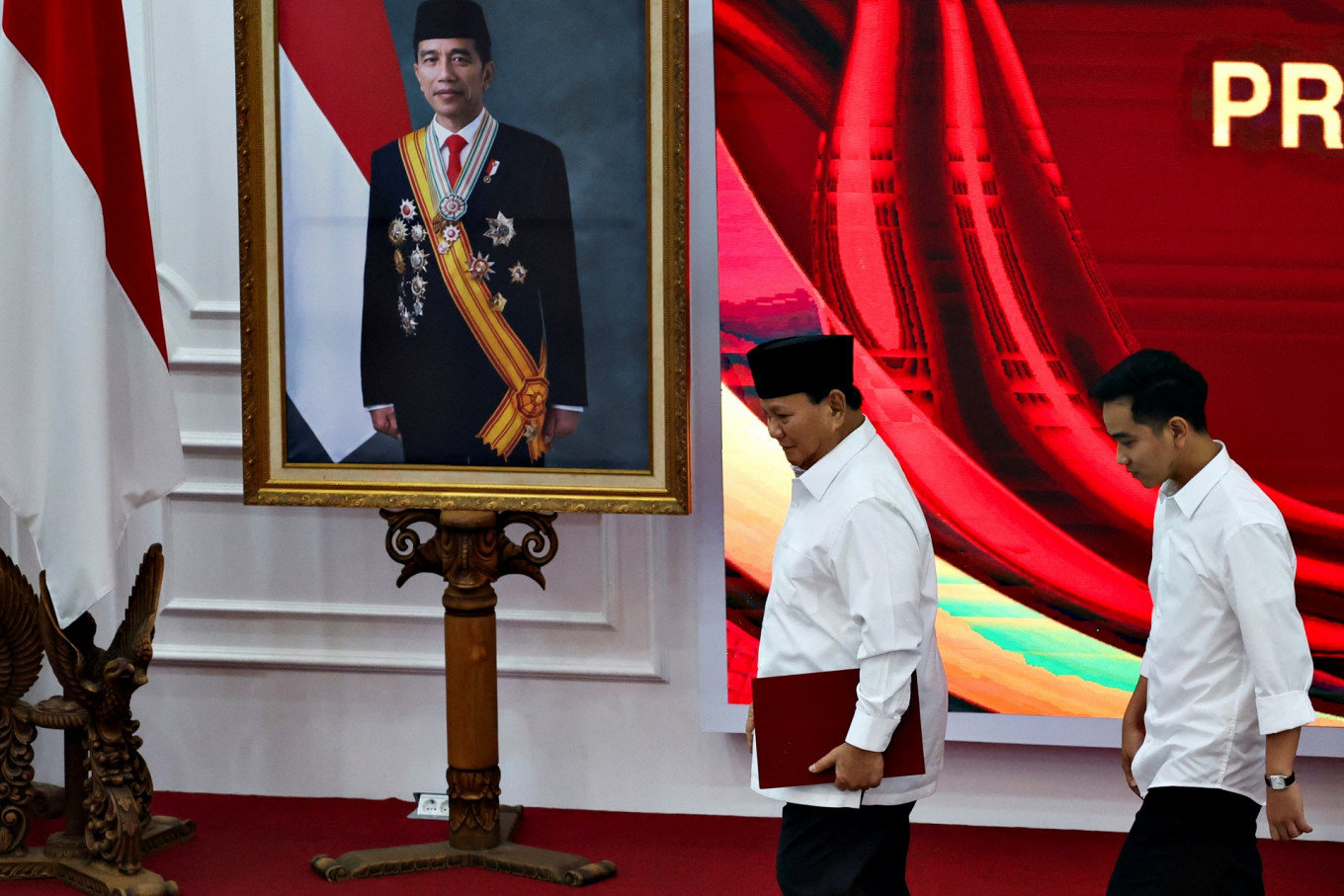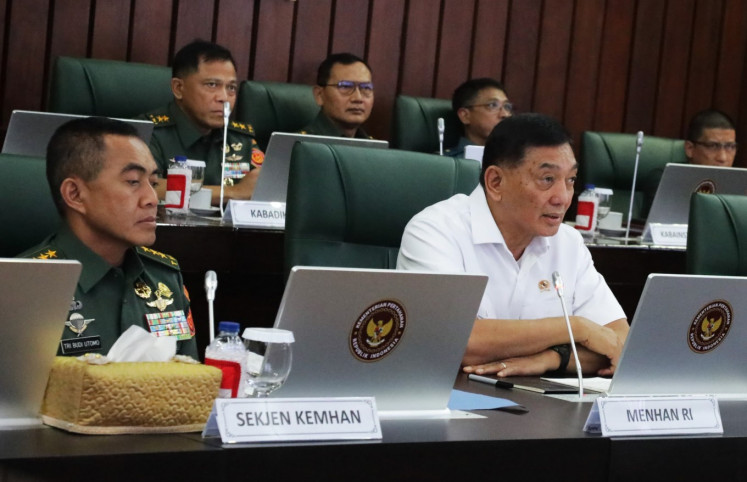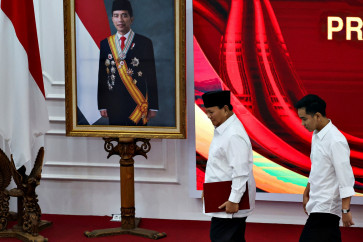Popular Reads
Top Results
Can't find what you're looking for?
View all search resultsPopular Reads
Top Results
Can't find what you're looking for?
View all search resultsHow Indonesia’s cyberspace entrenches oligarchic power
The 2024 presidential election is a testament to the resilience of the interwoven and inter-generational structure of political and financial power that represents the Indonesian oligarchy.
Change text size
Gift Premium Articles
to Anyone
 President-elect Prabowo Subianto (left) and vice president-elect Gibran Rakabuming Raka walk past President Joko “Jokowi“ Widodo's portrait on April 24, 2024, at the General Elections Commission (KPU) headquarters in Jakarta, as the poll body officially announced the presidential election winners. (Reuters/Ajeng Dinar Ulfiana)
President-elect Prabowo Subianto (left) and vice president-elect Gibran Rakabuming Raka walk past President Joko “Jokowi“ Widodo's portrait on April 24, 2024, at the General Elections Commission (KPU) headquarters in Jakarta, as the poll body officially announced the presidential election winners. (Reuters/Ajeng Dinar Ulfiana)

Prabowo Subianto’s victory in the Feb. 14 presidential election has cast a dark shadow over the future of Indonesian democracy. His triumph is widely attributed to the support of his former archenemy, Joko “Jokowi” Widodo, the very man once extolled by observers as a democratic reformist.
I argue that the rise of both Prabowo and Jokowi is the result of the extension of oligarchic power into an increasingly contested digital political space, in which elite interests engage in various control strategies to win votes and undermine any challenge to their ascendancy.
The 2024 presidential election was a testament to the resilience of the interwoven and inter-generational structure of political and financial power that represents the Indonesian oligarchy. The power of the oligarchs – sometimes in allegiance and sometimes in competition – in safeguarding their interests in different political and technological settings demonstrates how their massive resources have informed, if not defined, the tone of political conversations in cyberspace over the past decade.
They do so not so much by peddling misinformation as by coopting or creating pseudo-digital activism in cyberspace. In this way, they pave the way for the emergence of digital populism and propaganda, such as employed by the Jokowi and Prabowo campaigns.
Studies, including my own research, show how Jokowi’s image as a “man of the people” and Prabowo’s new persona as a “cuddly grandpa” were manufactured by an army of cybertroopers, paid for by their supporters.
This has contributed to a polarization of online civil society in which a cohesive and powerful counterforce has failed to emerge. Indonesian cyberspace has been reduced to another site of political struggle dominated by competing elite interests.

“Buzzing” has become a blanket term used by Indonesians to describe the behavior of a vast “influence” industry in social media, which comprises political consultancy firms, public relations companies, social media influencers, an army of cybertroopers/astroturfers (people who are paid to disseminate political propaganda and make it look like genuine public sentiment) and click-farm accounts (bots or individuals who are paid to interact with social media posts to create the appearance of positive engagement).

















